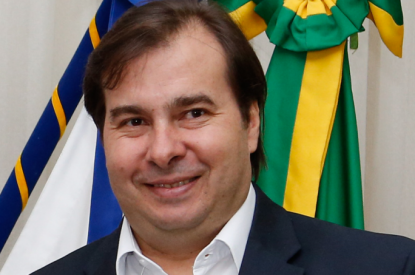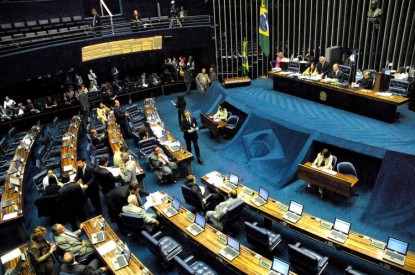Legislation
Brazil – Senate’s rejection of gaming bill could open up legislation in Brazil’s lower house
By Phil - 12 March 2018
The Committee on Constitution, Justice and Citizenship’s (CCJ) recent rejection of gaming bill PLS 186/2016, which had sought to green light gaming in Brazil, could well pave the way for new gaming legislation in the Lower House.
During the session last Wednesday (March 7) Senators criticised the report presented by Benedito de Lira (PP-AL), which suggested that the creation of specific laws for the sector could reduce the problems caused by illegal gaming. Thirteen senators voted against the proposal, while only two voted in favour dealing a devastating blow to pro gaming legislation in the Senate.
However, the President of the Chamber of Deputies, Rodrigo Maia, pictured, has agreed with parts of the rejected bill namely giving casinos in hotels the green light and has pledged to reach consensus on that one point, and then to put the matter before the plenary “in the coming weeks.”
The new bill would, however, be restricted in scope. “We believe that we have the possibility to build 32 (casinos) in Brazil, increase tax collection by R$20bn, and generate 200 thousand jobs. I think this is what we should this approve first,” Mr. Maia argued saying that it would be better to focus on one aspect of the market “instead of getting into the conflict and not approving anything.”
Prior legislation, which is ready to go before the Lower House, is much wider in scope as it would allow for the legalisation of different types of gaming, including casinos, bingo halls, online gaming and sports betting, as well as the popular “Jogo do Bicho” (a popular street lottery).
The process of opening up the Brazilian gaming market already took an unexpected turn in the Lower House at the end of February as it was revealed that a new proposal would only allow for casinos in integrated resorts in two Brazilian states: São Paulo and Rio de Janeiro.
The new proposal is being sponsored by the Ministry of Tourism. The Ministry is putting a unique emphasis on large-scale casino gaming ahead of all other types of betting meaning that other verticals would be omitted from the new gaming bill entirely.
According to the new proposal from the Ministry of Tourism, up to ten casinos could be built in just two Brazilian states: São Paulo and Rio de Janeiro. The gaming facilities would be part of larger complexes. The new proposal quickly drew fire from supporters of a more comprehensive initiative for the legalisation of gaming. Long time supporter of pro gaming legislation Deputy Joao Carlos Bacelar criticised the Ministry of Tourism before the Lower House on February 28th by pointing out that ten casinos in the country would only create 20,000 jobs, while the legalisation of a much wider offer such as betting and bingo would generate more than 700,000 jobs throughout Brazil.
A few days later Deputy César Halum accused fellow lawmakers of “fraud” when it came to favouring casinos in large-scale resorts. Speaking in parliament Mr. Halum claimed that an amendment in the law, which are designed to make structural changes to the Brazilian Tourist Board (EMBRATUR), would favour foreign interests, as it would only allow for large-scale casinos in resorts.
The deputy called it a “pirate amendment”, because he argued that it is an amendment that has little or almost nothing to do with the main issue of the original bill. Mr. Halum explained that the measures now on the table, which would be passed as a larger emergency measures and would no longer have to go through the committee stage, would only favour half a dozen foreign companies seeking to have a privileged position in the Brazilian gaming market.
However, The Ministry of Tourism has justified its latest move arguing that the integrated complex model is the only one that could be profitable in Brazil and it has the backing of Rodrigo Maia.
The government is currently focusing on tourism in order to attract foreign investment and increase tourist numbers. Changes to Embratur would make travel to and within Brazil cheaper by allowing increased foreign investment in domestic airlines. It is also hoping to quadruple the budget of Brazil’s tourism board, and is working to overhaul its promotion strategy and modernise tourism laws. The measures were annexed together late last year so that they can be approved as a matter of urgency. However, Minister of Tourism Marx Beltrão now wants to include five star casino resorts as part of the new changes to Brazil’s tourism laws.



